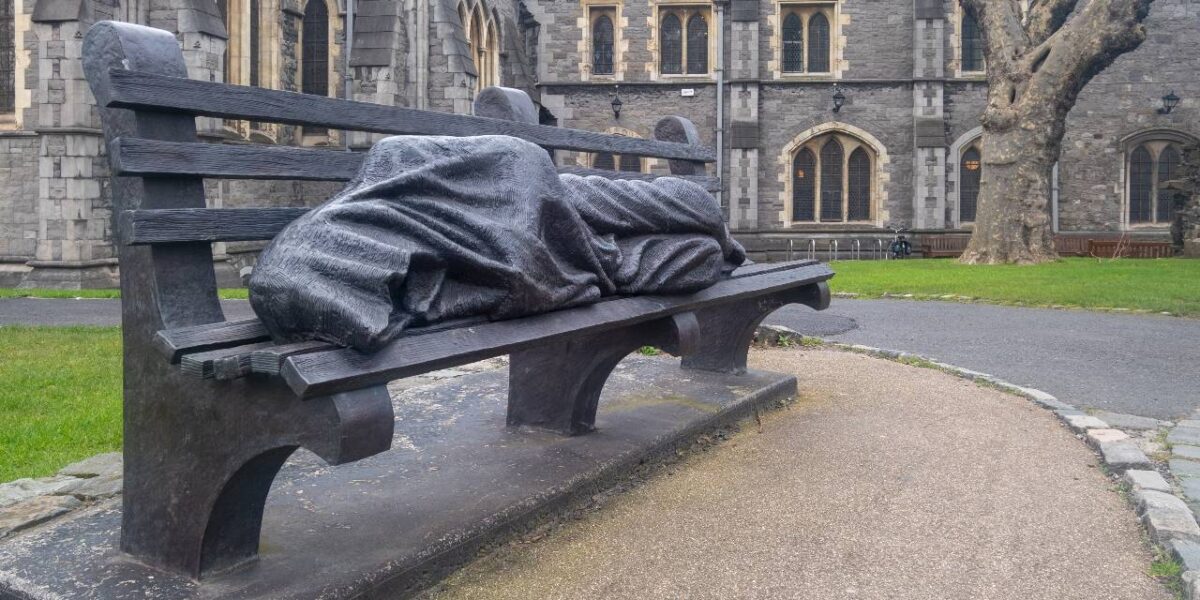Canada’s 2023 federal budget has been introduced, but organizations across the country are calling out the government for what is not included in the fine print.
The Canadian Alliance to End Homelessness (CAEH) says the federal government ignored the housing crisis in its latest budget.
The failure to adequately address homelessness in Canada comes as a growing number of people are living in precarious housing situations across the country.
In a March 28 news release, CAEH criticized the Liberal government for not addressing the housing crisis in Canada, noting that the country has recently welcomed one million newcomers. Couple that with a new wave of homelessness driven by skyrocketing inflation rates, and the situation becomes even more dire.
Tim Richter, CAEH President and CEO, says the federal government “does not see the scale and urgency of these crises, and have offered no solutions.”
“For thousands of Canadians who will not be able to pay their rent this week, they will find no relief or meaningful support in this budget,” Richer said in the release. “Too many others will be projected unnecessarily into the life-threatening experience of homelessness.
CAEH also panned the Liberals’ so-called grocery rebate, which they say does little to bridge the gap between incomes and the rising cost of essential needs. After all, what will an extra couple hundred dollars do when groceries are rising at double the rate of inflation and rents are going up more than 20 per cent in Canada’s largest cities?
Instead, the organization is calling for a targeted rent support program, like CAEH’s Homelessness Prevention and Housing Benefit. CAEH says the benefit would prevent up to 385,000 people from losing their homes and help another 50,000 people experiencing chronic homelessness access permanent housing.
Ultimately, CAEH says preventing a new wave of widespread homelessness will cost a lot less than the continued, growing response.
Students feel left behind in Budget 2023
Meanwhile, the Canadian Federation of Students is also expressing their disappointment with a lack of meaningful action for those who are studying in the country.
It is not all bad. The government is introducing $198 million to fund the Student Work Placement Program to help students find employment while in school. The Canada Student Grant will also be increased by 40 per cent beginning on August 1, meaning full-time students will be eligible for up to $4,200 in grants each year.
“It has never been more expensive to be a post-secondary student,” said CFS Chairperson Marie Dolcetti-Koros in a release.
That’s especially true for international students, who the CFS says pay over five times the tuition as domestic students. And even at that price tag, international students can’t access any public health insurance.
“Students are currently on the front lines driving a recovery out of the pandemic and are facing unique and unprecedented issues not seen by previous generations, and need a budget that will accurately reflect and address these challenges,” said Dolcetti-Koros.
Oil and gas
The budget also saw the introduction of new subsidies for oil and gas companies. Those subsidies come despite record profits for the sector and a need to meet climate targets by 2030.
Keith Stewart, Senior Energy Strategist at Greenpeace Canada, welcomed the unprecedented investments in green energy but raised concerns about subsidizing oil and gas.
“No money in the world could convince oil companies to become good actors on climate change,” Stewart said in a release, calling instead to regulate emissions.
Will Canada actually move ahead on the TRC’s calls to action?
When it comes to funding Indigenous communities and initiatives, Gerri Sharpe, President of Pauktuutit Inuit of Canada, is pleased to see some much needed changes.
The budget proposed $2 billion over 10 years for Indigenous health priorities, something Pauktuutit would like to see used in part to re-establish traditional midwifery services in the region. That’s in addition to fighting for higher wages, better working conditions, and a youth mentorship program.
“Specifically, Pauktuutit will seek funding for education and training of new Inuit midwives,” Sharpe said in a release. “These investments will reduce the stress and risks of travelling to urban centres in the south to give birth that are currently placed on expectant mothers and their families.”
The budget also committed to accelerate the implementation of the Federal Pathway to Address Missing and Murdered Indigenous Women, Girls, and 2SLGBTQQIA+ People. After failing to complete more than 13 of the 94 Truth and Reconciliation Commission’s Calls to Action issued in 2019, the push to streamline the remaining recommendations is a welcome move for Pauktuutit.
“Progress to act on the Inquiry’s report of 2019 has been unacceptably slow,” Sharpe said. “Hopefully, this new oversight mechanism will motivate all governments, the justice system, and other stakeholders to deliver the investments and actions that are so urgently needed.”
Additionally, the budget has put aside funding to create a new Indigenous and Human Rights Ombudsman. That’s in addition to a potential “Red Dress Alert” mechanism proposed earlier this year by NDP MP Leah Gazan.



